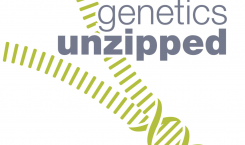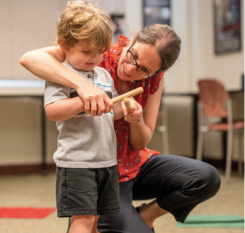Wired for sound: The genetics of music
Genetics Unzipped Podcast
https://geneticsunzipped.com/blog/2021/11/4/genetics-of-music
ACM Tempo Magazine: Music Mends
Libby Gardner (interview with Miriam Lense, p. 22, 24)
https://issuu.com/acm_pubs/docs/temposp22_whole/22
Academy of Country Music Tempo Magazine, Spring 2022 issue: Vanderbilt’s Music Cognition Lab Co-Director, Dr. Miriam Lense, highlights the research and valuable programs her team is working on to help uncover the benefits of using music for healing.
FAQ about Beat synchronization GWAS study
Reyna Gordon
https://www.vumc.org/music-cognition-lab/FAQbeatGWAS
This page is an FAQ about Niarchou, Gustavson et al., 2022, Nature Human Behaviour. Genome-wide association study of musical beat synchronization demonstrates high polygenicity.
Access the full paper at https://doi.org/10.1038/s41562-022-01359-x
Mental Notes: Music Cognition Lab is dedicated to the scientific study of how music affects the brain and behavior
Vanderbilt News
https://news.vanderbilt.edu/2020/08/05/mental-notes-music-cognition-lab-is-dedicated-to-the-scientific-study-of-how-music-affects-the-brain-and-behavior/
The past decade in particular has been marked by a dramatic increase in music cognition inquiry, as about 100 laboratory groups around the world, including at Vanderbilt, are working across disciplines to understand music’s relationship to the brain, behavior and health, and to develop effective intervention strategies.
At home with children? Have fun and get creative with this music toolkit.
Using music to understand how children develop speech skills
Reyna L. Gordon
https://notables.vkcsites.org/2020/05/using-music-to-understand-how-children-develop-speech-skills/
Music is everywhere in modern life, even during quarantine times of Covid-19. Yet individuals vary a lot in their music abilities. In my lab we are particularly focused on studying people’s rhythm skills. Some folks pick up rhythms easily – they can tap in time to the beat, dance, and learn new songs almost effortlessly. Other people may struggle more with rhythm – they may not really hear the beat in music. Across the population, it turns out that there is a huge range of rhythm abilities! Have you ever wondered why this could be?
Studies Link Musical Rhythm and Language
We shared about Musical Activities to Support Parent-Child Relationships on the NEA Art Works blog!
Miriam Lense
https://www.arts.gov/art-works/2020/taking-note-musical-activities-support-parent-child-relationships
With schools and daycares closed, many parents are looking for activities to engage in with their young children. As part of the National Endowment for the Arts Research Lab project awarded to the Vanderbilt Music Cognition Lab in 2018, our Research Lab studies how parent-child musical activities may support families of children with and without developmental disabilities.
The Big Picture: A Look at the National Endowment for the Arts
https://www.arts.gov/magazine/2020/1/land-arts/big-picture
The VUMC NEA Research Lab was mentioned by Mary Ann Carter, chairman of the National Endowment for the Arts, in this article on the NEA in American Artscape Magazine!
Autism study tracks musical rhythm as possible treatment
VUMC Reporter
http://news.vumc.org/2019/11/06/autism-study-tracks-musical-rhythm-as-possible-treatment/
Researchers from the Vanderbilt Bill Wilkerson Center and the Marcus Autism Center at Emory University School of Medicine are partnering to study musical rhythm synchronization as a part of social development and how it’s disrupted in children with autism spectrum disorder (ASD) in hopes of developing music interventions for improving social communication.






